Striking a Balance: Negotiating Remote Work in Your Next Role
In today’s ever-evolving professional landscape, the traditional 9-to-5 office setup is no longer the only path to success. The surge in remote work arrangements has opened up new possibilities for both employees and employers. If flexibility is high on your priority list, skillfully negotiating remote work during the hiring process could be your ticket to achieving the work-life harmony you crave. But how do you broach this subject effectively and secure the flexibility you desire? Let’s explore some key strategies to help you navigate this conversation with finesse.
Laying the Groundwork: Do Your Homework
Before you even step into the interview room (virtual or otherwise), arm yourself with knowledge. Take the time to thoroughly research the company’s stance on remote work. Do they already offer flexible arrangements for positions similar to the one you’re eyeing? Understanding the lay of the land will give you a solid foundation for your negotiation.
Next, take a good, hard look at your own role. Can your responsibilities be carried out effectively from a home office? Having a strong case for the feasibility of remote work will bolster your position significantly. Be prepared to outline how you’ll maintain productivity and collaboration from afar.
Confidence is Your Secret Weapon
As you navigate the interview process, don’t be shy about showcasing your remote work prowess. Highlight experiences that demonstrate your ability to manage time effectively, communicate clearly in virtual settings, and consistently meet deadlines without constant supervision. These skills are gold in the remote work world.
When discussing flexibility, frame it as a win-win situation. Focus on how remote work can benefit both you and the company. Increased productivity, reduced overhead costs, and access to a wider talent pool are all compelling arguments in your favour.
Timing is Everything: Open the Conversation Early
Don’t wait until you have an offer in hand to bring up remote work. Ideally, you should gauge the company’s openness to flexible arrangements during the initial stages of the interview process. This demonstrates that you’re upfront about your priorities and allows for a more open dialogue.
Be prepared to discuss the nitty-gritty details. Have a clear plan in mind for your proposed work schedule, preferred communication tools, and strategies for seamless collaboration with remote colleagues. Showing that you’ve thought through the practicalities will inspire confidence in your ability to thrive in a remote setting.
Master the Art of Negotiation
Throughout your discussions, keep the focus on the value you bring to the table. Emphasise how remote work will enhance, not hinder, your performance. Be ready with concrete examples of how you’ve excelled in remote or flexible arrangements in the past.
While it’s important to have a clear vision of your ideal work arrangement, be prepared to find middle ground. Perhaps there’s room for compromise on the number of days in the office or specific core working hours. Flexibility goes both ways, after all.
Once you’ve reached an agreement, ensure that the details of your remote work arrangement are clearly outlined in your employment contract. This provides clarity and protection for both parties, preventing any misunderstandings down the line.
Remember Your Worth
As you enter these negotiations, keep your confidence high. Research your market value and be prepared to stand your ground if flexibility isn’t on offer. Remember, in today’s competitive job market, companies that refuse to embrace flexible working may find themselves losing out on top talent.
Always frame your request as a mutually beneficial arrangement. By demonstrating how remote work can lead to increased productivity, better work-life balance, and ultimately, a more satisfied and loyal employee, you’re painting a compelling picture for your potential employer.
Charting Your Course to Flexibility
Negotiating remote work arrangements requires a delicate balance of confidence, preparation, and flexibility. By arming yourself with knowledge, showcasing your remote work skills, and approaching the conversation with a win-win mindset, you can significantly increase your chances of securing a flexible arrangement that allows you to thrive professionally while maintaining the work-life balance you desire.
Remember, the landscape of work is changing rapidly, and more companies are recognising the benefits of flexible arrangements. Your next role could be the perfect opportunity to shape a working life that truly works for you. So, approach your negotiations with confidence, clarity, and a spirit of collaboration. The flexible future you envision might be closer than you think.
Key Takeaways:
- Research the company’s remote work policies before the interview
- Highlight your remote work skills and experiences
- Frame remote work as a benefit for both you and the company
- Bring up the topic early in the interview process
- Be prepared to discuss logistics and compromise
- Focus on the value you bring to the role
- Get any agreements in writing
Looking for the next step in your career? Or looking for the best Payroll & HR talent to join your organisation? Contact our team on:
Telephone: 01727800377
Email: [email protected]
Website: https://jgarecruitment.com




